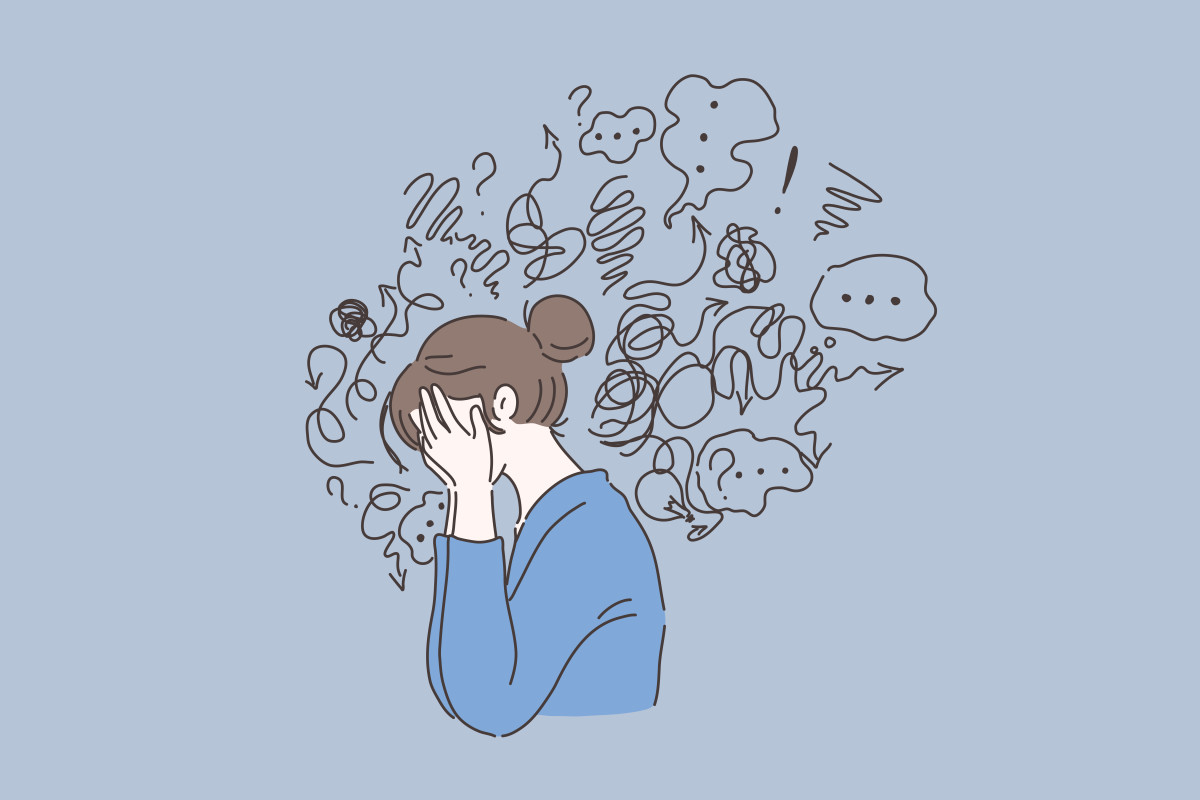To Push or Not to Push: What to Do When Working Through Depression

When I'm going through a depressive episode, the first aspect of my life that is massively impacted by my mental illness is my productivity. It is hard for me to get any work done even though I know that time is of the essence and that I do not really have a choice. However, this mentality of pushing through mental illness to get work done is often perceived as counterproductive and harmful. For those who must get their work done, this can be frustrating. Your depression will not let you get any work done and it is not recommended to keep going but if you don't, you are only going to put yourself in a tougher position that will further damage your already fragile mindset. To push or not to push: that is the question. If you're struggling with a depressive episode and you're unsure of whether to keep going or stop, here is an article that will hopefully clarify the entire situation for you.
The Short Answer: Stop Pushing (Then Gradually Increase Your Life Responsibilities)
When I was in high school and I was placed into an intensive outpatient program for my depression, I was probably the happiest I was in a while. The reason? I no longer had to deal with the daily stresses that were contributing to my poor mental health in the first place. The only things I had to worry about were making it to group and figuring out what I was going to eat during the day. The lack of stress greatly helped me to work through my depression and allowed me to finally learn how to deal with the troubles that were plaguing me before.
This is rarely going to be an option for an adult lifestyle unless you place yourself into a program that gives you the opportunity to really work on your mental health. Instead, we need to take a look at your stressors and decide what you can get rid of right at this moment.
How to Gradually Push Through Your Depressive Episode
As we already identified, getting through depression isn't as easy as pushing through it or choosing not to push through it. Successfully working through your depression is about management, especially in stress. Here's what you need to do if you're dealing with a depressive episode but you still need to deal with everyday life.
Step 1. Identify Stressful Areas in Your Life
The biggest stressors for me often come in the form of finances, work, and relationships. Any stress or struggle in this area automatically sets me off and puts me at greater risk for a depressive episode. If I finally do start experiencing a depressive episode, I can pretty much guarantee that one of these categories triggered me. So, the first thing that I do is evaluate my life and figure out which parts are stressing me out the most. Do I have too much work or not enough work? Am I not producing enough income at the moment? Are there any issues with friends that are making me feel terrible about myself? No matter what areas your stressors come in, it's important to identify them so that you can work on them.
Step 2. Eliminate As Many Stressors As Possible
You can't just quit a job or hide away from the world when you are dealing with depression. As attractive as that sounds, it is just not possible and will only create more issues for yourself in the long-run. The key to getting into a healthier mindset is to remove as many stressors from your life as you are able to. For example, let's say that you are having trouble getting through work and you feel absolutely burnt out with your large workload. If you can, make your workload lighter for the moment until you can get a grip on everything. Once you've taken care of that stressor, you can then begin to target other stressors and make their impact less severe or eliminate them entirely. Less stress gives you more time to relax and work on your mental health.
Step 3. Focus on Your Mental Health for a While
During this hiatus from all of your stress, it is important that you take the opportunity to work on your mental health. Taking a brief break from stress only to dive right back in without preparing yourself mentally will only put you back in the same position as before. Go see a therapist. Talk to some friends. Make a list of things that you can do to care for yourself. Whatever it is that you have to do to work through your depression and come out healthier with proper coping mechanisms, do it!
Step 4. Reintroduce Responsibilities As Your Mental Health Improves
Once you begin to get a grip on your mental health, slowly begin to reintroduce major responsibilities. When you first start out, reintroduce responsibilities that are easy to achieve. This will help to build up your confidence and improve your overall mood. As you begin to see that you are more than capable of tackling previous stresses, start tackling larger ones until you can begin to return to your normal life without struggling with your mental health. Things will take time and you may fall back into your depression but as long as you come back to this guide and repeat the steps, you should be fine.
Mental health is very important and it is necessary that you get help as soon as possible. However, it is also necessary to make sure that you are taking care of your responsibilities so that you do not create more issues for yourself. Don't think about depression as something that you shouldn't fight against or push through. Think of it as something that you need to take care of while you still try to live your life. Most importantly, if your depression is severe and you are thinking of harming yourself, make sure to get help as soon as possible. You are important!








